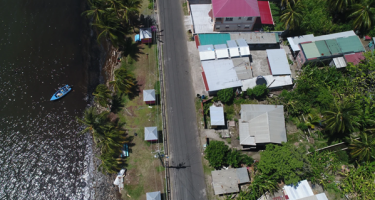Entrepreneurship from the Roots
Elides, Paulino, Johanna and Andrey, entrepreneurs from the indigenous territories of the Southern Zone of Costa Rica, have different reasons for their entrepreneurship, but there is one thing that unites them: their love for their territory, for nature and their culture.
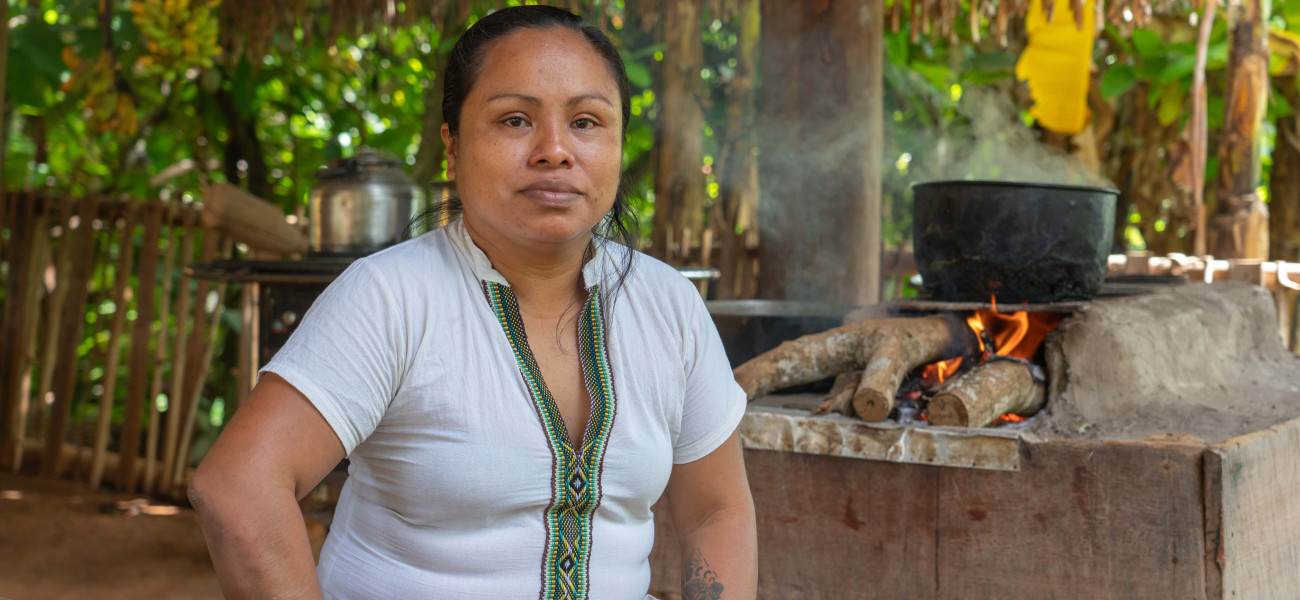
Johanna, entrepreneur from the indigenous territories of the Southern Zone of Costa Rica. © PNUD CR
The development of communities in indigenous territories is linked to respect for life, nature, homage to their roots, their histories and their traditions. Each of these elements is fundamental and are the driving force behind those who seek entrepreneurship in the territories where they were born and raised.
Their voices are strong and vibrant, echoing the lessons of ancestral people who have understood for centuries that our well-being and future as humanity depend on a healthy and respectful relationship with the planet.
However, the road to entrepreneurship can be very harsh because Costa Rica, although it is a global benchmark in the development of sustainable tourism, there are still structural gaps in the indigenous territories, such as the need for resources and financial flows, the development of entrepreneurial skills and inequalities in access to opportunities and enabling conditions. These gaps must be overcome so that indigenous peoples can participate in the business opportunities of this sector, under the same conditions and from their own worldview.
It has been a long journey for Elides, Paulino, Johanna and Andrey, entrepreneurs from the indigenous territories of the Southern Zone of Costa Rica. Each one of them has had their own reasons for their entrepreneurship, but there is one thing that unites them: their love for their territory, for nature and their culture.
Paulino Nájera Rivera found his motivation for entrepreneurship when Térraba, his community, experienced a serious environmental crisis due to deforestation and the use of chemicals in agriculture, which contaminated the only source of water. The scarcity and destruction of local biodiversity prompted him to take action to restore nature. Paulino decided not to stand idly by, but to act by restoring and protecting the forest. As the forest grew, so did the idea of hiking tours and bringing in people interested in getting to know this place, which was gradually regaining its strength. This is how the opportunity to create a space for ecological and cultural tourism began to develop.
"That's how Rincón Ecológico Cultural was born, from a dream, from an idea that no one supported at first. But we went ahead and planted more than 37,000 trees of native species in order to see them grow someday. It was very difficult at the beginning, looking for seeds of almost extinct species, we wanted to do something different and with the help of community elders we were able to learn what to plant and how to take care of the forest," says Paulino with a serene voice that blends with the sound of the rain in the background.
Entrepreneurship in indigenous territories can become a fundamental tool to strengthen the community's connection and thus preserve its cultural heritage. One example is KuyekECoVida, the enterprise of Andrey Zúñiga Torres in Ujarrás, which, through ecotourism, has found a way to highlight the cultural and natural wealth of his territory. This initiative not only invites visitors to discover the beauty of the environment, but also seeks to boost the local economy and ensure that traditions are passed on and kept alive for future generations.
"My business venture was born out of a desire to showcase the beauty and cultural richness of my community, Guanacaste de Ujarrás. I have always had a deep connection with the Bribri-Cabécar land and culture, and I saw the need to create something that would allow others to experience this same connection. I decided to start a business to generate a positive impact on my community both economically and culturally, and I knew that ecotourism was a way to do this, preserving and passing on our traditions to future generations", says Andrey excitedly.
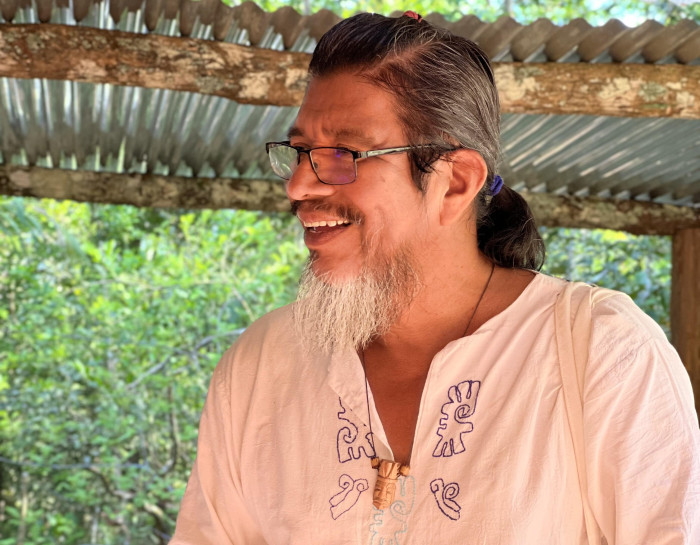
Paulino, Raíces alumni. © Impact Hub SJO
In its first two editions, Raíces has mobilized more than US$1.13 million, benefiting 819 people and supporting 30 enterprises through the SBD's Seed Capital funds, as well as funds for community work and seed capital from the MTSS. It is relevant to note that 67% of Raíces' ventures are led by women and 50% of the MTSS funds have been allocated to women, reflecting a commitment to gender equality in economic development. Raíces has also had a positive impact on 1,891 hectares, promoting sustainable practices that contribute to environmental conservation and the strengthening of biodiversity in indigenous territories. The third generation of Raíces is currently being implemented.
"Participating in Raíces has had a positive impact that has transformed my life. Some time ago I thought I couldn't because I was a woman, because I was a mother, because I was from an indigenous territory, but Raíces has been my ally, it is that dream come true because even though I was already providing tourism services, even though I had the experience of receiving people and showing them my culture, now I can do it in a better way, with better quality, with a better vision," says Johanna.
Entrepreneurship from the roots is not only about doing business, it also involves a deep connection between the territory and its history. The journey of Elides, Paulino, Johanna and Andrey is a clear example of the transformative power of entrepreneurship in the indigenous territories of Costa Rica, where respect for nature and culture are the engine of their fight for a better future.
On this path, each step is an act of respect and love for its roots, reminding us that development is strictly linked to the care of biodiversity and culture. Entrepreneurship from the roots is to celebrate and honor identity and is the desire for a better future for all people and the planet.
"Raíces is a reencounter with ourselves, it is that reencounter that had been cut off from us. Today we are re-empowering ourselves and we want the new generations to take ownership of our culture. Offering our food, clothes and our traditional art is a way to affirm our presence in a very competitive market where there will always be people who are willing to learn about what is ours," says Paulino.
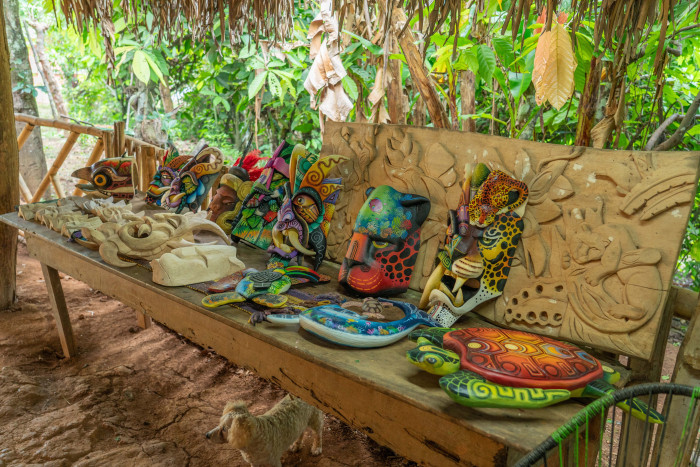
© PNUD CR
"Raíces is a reencounter with ourselves, it is that reencounter that had been cut off from us. Today we are re-empowering ourselves and we want the new generations to take ownership of our culture. Offering our food, clothes and our traditional art is a way to affirm our presence in a very competitive market where there will always be people who are willing to learn about what is ours," says Paulino.
"My children were young and the only option was to work outside the community, far from the daily life of the people. However, I decided that this was not the path I wanted to follow. I recognized that there was an opportunity in our territory, an opportunity that was on the horizon, although at that time it did not seem as big as it is today," says Elides Rivera Navas, entrepreneur of the Idön Garden in the Indigenous Territory of Térraba.
In Costa Rica, more than 50% of rural women work informally, according to a study by the School of Economics of the National University of Costa Rica in 2022. For indigenous women the situation is even more complex, only 16.9% of them are employed and their average educational level is only 5 years, taking into account that 70% of girls will not attend school. These data highlight the profound inequalities that limit the development and inclusion of these women in the labor force, making community entrepreneurship a fundamental tool for improving their well-being and that of their families.
"In the most difficult moments, what kept me going was the need for entrepreneurship. Women are entrepreneurs by necessity. I was looking for ways to create income to support my family, including my father and mother, who are elderly people with health difficulties. Although we live in an indigenous territory where we grow what we consume, we still need income to pay for basic expenses. My motivation is to improve my family's well-being and help other mothers in my community, thus contributing a grain of sand," says Johanna Lázaro Morales, an entrepreneur from Cáu^shás Farm Boruca in the Boruca Indigenous Territory.
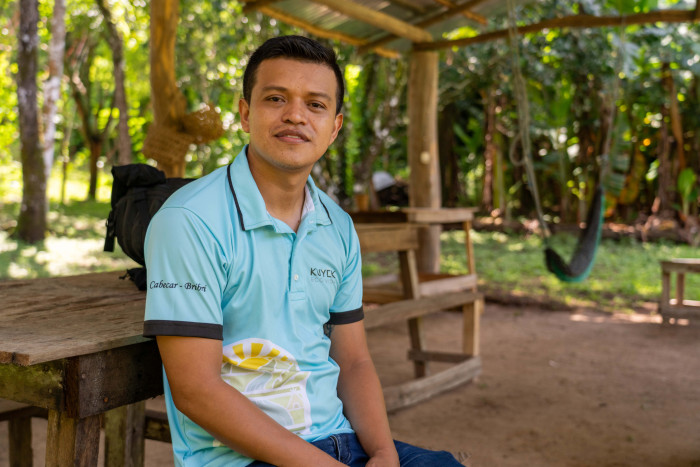
Andrey, participating entrepreneur. © PNUD CR
Development from an indigenous perspective
Elides, Paulino, Johanna and Andrey are graduates of the first and second editions of Raíces, a program designed to promote the development and strengthening of business ideas in the sustainable tourism sector, led by indigenous people in their territories. This program seeks to facilitate access to financing, diversify their market, expand their customer base and offer new services, giving them the opportunity to promote their culture while contributing to the development of their communities.
Raíces emerged between 2019 and 2020, based on a mapping of potential tourism products in the seven indigenous territories of Buenos Aires de Puntarenas and Pérez Zeledón. This process was aligned with Goal 63b of the National Biodiversity Strategy 2016-2025 (ENB2), which promotes incentives for sustainable tourism activities prioritized by indigenous communities. In the process of developing the Financial Plan for Biodiversity, led by the Ministry of Environment and Energy (MINAE) and from the technical assistance of the Biodiversity Finance Initiative (BIOFIN) of the United Nations Development Programme (UNDP), the structural financing gap that existed to implement this and other ENB2 Goals aimed at indigenous peoples became evident.
The co-design of the program began in 2022 with the delivery of workshops both with strategic partners as well as with the people of the territories. These workshops allowed the target audience to be profiled and institutional needs to be understood, in addition to providing space for indigenous communities to define their vision of entrepreneurship and development. Key topics addressed the perception of being an indigenous tourism entrepreneur, the characterization of the destination and the profile of the ideal tourist, as well as mapping local needs for the success of the projects.
"Raíces has given me the opportunity to connect with other entrepreneurs who share values of respect for culture and nature. They have given me access to tools and knowledge in key areas such as business management, marketing and sustainable tourism, stated Andrey.
Raíces is a program that acts as a working platform aimed at strengthening sustainable tourism enterprises in indigenous territories by connecting existing public policy initiatives and collaborating with public-private organizations. Among its partnerships are "Sistema Banca para el Desarrollo (SBD)", the Development Banking System with resources from seed capital to incubation processes for prototyping and implementation of business ideas, and the development of association initiatives from a collective approach; the Ministry of Labor and Social Security (MTSS), which seeks to mobilize financial resources and strengthen local capacities through community work projects, and support for microenterprise and entrepreneurship through the National Program to Support Microenterprise and Social Mobility (PRONAMYPE) and the National Employment Program (PRONAE); and the National Learning Institute (INA), which provides business management services such as talks, workshops, training, and consulting.
"The program has had a positive impact on the town because it has generated employment and promotes associativity among community producers. This not only encourages people to consume local products, but also generates resources for young people and women who are unemployed," Elides points out.
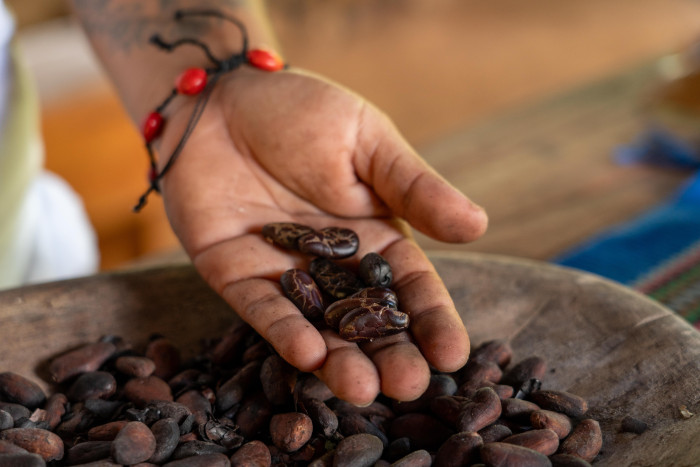
© PNUD CR
Raíces is developed by strategic partners led by the National Commission for Biodiversity Management (CONAGEBIO) of the Ministry of Environment and Energy (MINAE) and the National Indigenous Roundtable of Costa Rica (MNICR), with the support of the Development Banking System (SBD), the Costa Rican Tourism Institute (ICT), the Ministry of Labor and Social Security (MTSS), the National Learning Institute (INA), the National System of Conservation Areas (SINAC), the Rural Development Institute (INDER), Impact Hub as operating agency, and the Biodiversity Finance Initiative (BIOFIN) Costa Rica of the United Nations Development Programme (UNDP).
- Country: Costa Rica
- Project:
- Contact:
Diana Garro Solórzano
